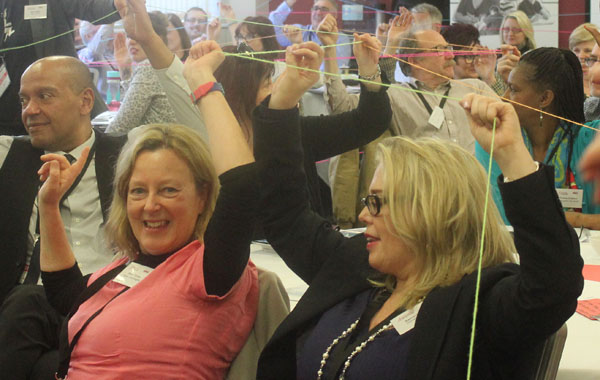Busters: it’s time to clean up your language

Do you find yourself getting caught up in knots trying to understand the difference between a Disabilities-related Expense (DRE) and a Disabled Facilities Grant (DFG)?
Jargon can be very confusing and in some cases impersonal or ‘de-personal’ and even offensive. For people who uses services and carers it can create obstacles to getting support. It is also confusing to professionals.
What are we going to do about it?
TLAP, along with our co-production members, is running a Jargon Buster promotion to help people understand all the unfamiliar terms and phrases that are used across the health and social care system.
How are we going to do it?
We are encouraging more people to use our award winning online Care and Support Jargon Buster which is a plain English guide to the most commonly used health and social care words and phrases and what they mean.
Why is this important now?
- Good information and advice are at the heart of personalised care. A fact recognised in the Care Act, and associated statutory guidance. But we know that people with care and support needs still complain that information and advice is poor. Speaking in plain English with limited jargon must be key to making a difference. It is also a more humane and person-centred way of communicating. Sally Percival, has written a powerful blog, See me I am a person, which describes this very well.
- An increasingly integrated health and social care system means we are seeing a new wave of jargon coming on board. If we can’t stop the tide we can at least throw a life raft in the form of some plain English definitions. For example, Expert Patients Programme (EPP)
A programme of weekly classes to help you manage your own health and live as well as possible with a long-term condition. EPP courses take place across the country and cover all types of health conditions. You can find out about them by calling Self Management UK on 0333 445 840.
What you can do
Be a buster – help us in the following ways
- Submit new jargon by emailing it to info@tlap.org.uk
- Embed the TLAP Care and Support Jargon Buster on your website. https://www.thinklocalactpersonal.org.uk/widgets/jargon-widget-builder/
- We are looking for representatives from the TLAP Partnership to join the group that produces the plain English definitions. If you are interested, please email us.
- Tweet using @TLAP1 #jargonbusterwidget #TLAPjargonbuster
More information
How terms enter the Jargon Buster
The plain English definitions are tested for accuracy and accessibility by people who use services, carers, representatives from councils, information providers. They are also scrutinised by members of the public who act as a sector naïve group. Around 10-15 new definitions are added to the jargon buster every other month.
How to download the widget
Your IT team will need to complete the Jargon Buster widget builder according to how you would like the jargon Buster to appear on your website.
Examples of how the Jargon Buster can be embedded
Salford Council http://www.salford.gov.uk/health-and-social-care/contact-adult-social-care/information-and-advice/
Enfield Healthwatch http://www.healthwatchenfield.co.uk/
The NICE Collaborating Centre for Social Care (NCCSC), a partnership led by SCIE.
“We develops social care guidelines on behalf of NICE. Our audience for the guidelines includes people who work in health and social care and people who use services and their families and carers. We need to be sure that the language in our guidelines is accessible to everyone, so words that are not used in everyday English have to be clearly explained. Fortunately, there is an easy way to provide explanations - we include a link to the TLAP Jargon Buster in our guidelines. TLAP’s co-productive approach to developing the Jargon Buster has resulted in a very useful plain English guide to words commonly used in health and social care”.
